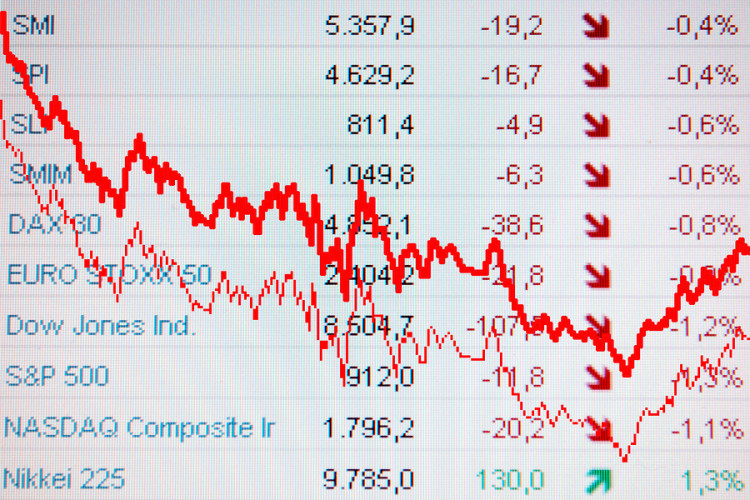Dollar Weaker as Fed Outlook Blurred; Korea Stocks, Oil Decline

10 Feb 2016 18:29
©2016 Bloomberg News
Emma O’Brien
(Bloomberg) — The dollar maintained losses, trading near its weakest level since 2014 against the yen, after Janet Yellen signaled further interest-rate increases may be delayed should the turmoil in global markets continue. While the comments boosted Australian stocks, South Korean equities returned from a three-day holiday to fall with futures on U.S. indexes.
A Bloomberg gauge of the greenback versus 10 major peers was near its lowest level since November as the Australian dollar to the Korean won strengthened. Futures on U.S. equity indexes signaled declines, after American stocks retreated into the close. While Australia’s benchmark snapped a four-day drop, the Kospi gauge in Seoul slid the most in three weeks, with markets in Japan, China, Taiwan and Vietnam shut Thursday. Those in Hong Kong also return Thursday. U.S. crudeextended declines below $28 a barrel.
“Janet Yellen had a delicate task last night — to sound concerned enough to reassure investors that the Fed was feeling their pain, while still sounding upbeat enough to bolster the notion that this volatility will all blow over,” Sharon Zollner, a senior economist in Auckland at ANZ Bank New Zealand Ltd., said in a client note. “The Fed has no idea how this is going to pan out either, so all Yellen could really do was ensure she wasn’t the catalyst for the lurch.”
Yellen’s testimony before Congress did little to quell market volatility, with the central bank chief saying the Federal Reserve still expects to raise rates gradually while making it clear that continued turmoil may alter its forecasts. She highlighted uncertainty over the pace of China’s growth and the related rout in commodities, concerns that have roiled financial markets throughout the year and twice pushed global shares to the brink of a bear market.
Markets buckled earlier this week as Deutsche Bank AG sparked concern European bank creditworthiness was weakening as oil’s rout took U.S. crude below $28 a barrel. While central banks from Japan to Europe have signaled additional stimulus is at the ready, market volatility has intensified in recent weeks. Yellen’s acknowledgment that the ructions have clouded global growth added to the anxiety.
Stocks
The MSCI Asia Pacific excluding Japan index was little changed as of 9:24 a.m. Tokyo time, as stocks in Sydney and Seoul diverged.
Australia’s S&P/ASX 200 Index gained 0.4 percent, with healthcare stocks and telephone companies leading the charge higher, while the S&P/NZX 50 Index in New Zealand fell 0.2 percent in a third day of losses. The Kospi lost 2.3 percent, on track for its worst day since Jan. 20.
Standard & Poor’s 500 Index futures dropped 0.3 percent with contracts on the Dow Jones Industrial Average, which shed 0.6 percent last session amid losses for Walt Disney Co. and International Business Machines Corp. The S&P 500 initially climbed on Yellen’s comments, before reversing that advance to end Wednesday down less than 0.1 percent, a second straight day of closing basically little changed.
Markets in mainland China and Taiwan remain closed for the rest of the week for the Lunar New Year holidays, while Japan resumes Friday. An update on Malaysian factory output is due Thursday and the Philippines reviews benchmark rates.
To contact the reporter on this story: Emma O’Brien in Wellington at eobrien6@bloomberg.net To contact the editors responsible for this story: Emma O’Brien at eobrien6@bloomberg.net John







No Comment